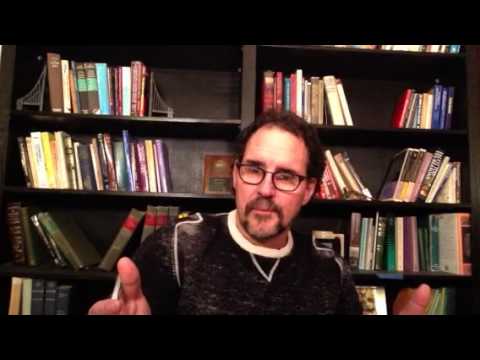We run our website the way we wished the whole internet worked: we provide high quality original content with no ads. We are funded solely by your direct support. Please consider supporting this project.

Free Will: An Aesthetic Model
Greg continues his thoughts on free will by offering an aesthetic model for free will. This one gets pretty philosophical, but it’s worth toughing it out.
Category: Q&A
Tags: Calvinism, Determinism, Free Will, Open Theism, Philosophy, Satan and the Problem of Evil
Topics: Free Will and the Future, Providence, Predestination and Free Will
Related Reading

Molinism and Open Theism – Part II
In the previous post on this topic I briefly outlined Molinism and then discussed “the grounding objection.” In this post I’ll first discuss another fundamental objection to Molinism and then discuss how it is overcome by the Open View of the Future. In the process it will be clear how the Open View differs from…

Why Compatibilistic Freedom Does Not Make Sense
Compatibilism is the view that free will is compatible with determinism. In this view, freedom is defined as the ability to do what you want, though what you want is determined by factors outside of you. Theologians who espouse this perspective, hold that God ultimately determines what individuals want. This is in contrast to “self-determining…

A Calvinist and an Arminian walk into a bar…
Toby Bradbury via Compfight Roger Olson posted A Conversation between a Calvinist and an Arminian about God’s Sovereignty that we thought was dead on. In fact, we kind of wonder if Roger is bugging some of the conversations we’ve had. Déjà vu much? And since Roger has argued that Open Theism should be included under the broader umbrella of…

What is omni-resourcefulness?
Question: What do you mean when you refer to God’s omni-resourcefulness? Can you support this with Scripture? Answer: I and others use the term omni-resourcefulness to highlight a feature of God in Scripture that the classical theological tradition consistently overlooks. Part of the greatness of the God of the Bible, we argue, is that he…

8346
Umberto Salvagnin via Compfight Oh oh. It’s getting ugly up in here. Frank Viola is suggesting that Greg needs to fix a nice tall glass of shut-up juice. He and Greg have decided to have a debate on the open view sometime this fall, and they have been engaging in some smack talk since that decision…

Look!
Heh peeps, For several years in college and seminary I was enamored with Ludwig Wittgenstein. In fact, the main reason I decided to attend Yale Divinity School was to study under Paul Holmer who was arguably the world’s foremost authority on Wittgenstein at the time. (He was also considered one of the leading authorities on Kierkegaard and C.S.Lewis,…
